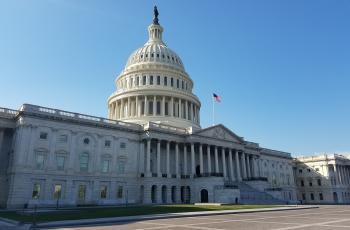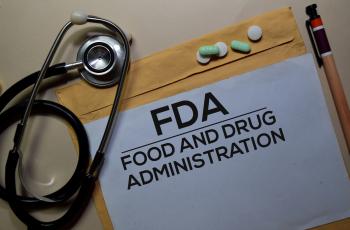News Updates - 5/4/2021
With this series we will bring you the latest news in diabetes advocacy and policy. This week we cover news updates in insurance and access to care, stigma and society, insulin affordability, and government and legislation.
Insurance and Access to Care
Telehealth supporters are advocating for access to virtual diabetes prevention programs
Advocacy organizations and policymakers are advocating for virtual access to the Medicare Diabetes Prevention Program (MDPP). The COVID-19 pandemic has highlighted the value of using telehealth for diabetes healthcare and prevention. Despite years of mounting pressure to add telehealth to the MDPP, The Center for Medicare and Medicaid Services (CMS) has not considered virtual diabetes prevention as an adequate alternative to in-person care.
Why it matters: Access to typical in-person diabetes prevention programs has been limited during the pandemic. The Alliance for Connected Care drafted a letter stating that “CMS must act immediately to preserve access to these services.” An estimated 5.2 million Medicare Part B beneficiaries were eligible for the MDPP in 2020. Access to virtual MDPPs would help more Americans access vital resources to prevent type 2 diabetes.
What you can do: Look here for some other ways telehealth can continue after the COVID-19 pandemic.
Over 12 million Americans have been enrolled in the ACA insurance marketplace during the 2021 open enrollment period. That is a 5% increase from 2020 marketplace enrollment. CMS will also dedicate $80 million to outreach and education programs that will encourage eligible Americans to enroll for health insurance in 2022.
Why it matters: The Affordable Care Act has helped to drastically expand insurance coverage in the US. Before the ACA was passed in 2010, 33 percent of low income Americans with diabetes were uninsured. After the ACA took effect, only 6 percent of low income adults were uninsured. However, millions of Americans still lack health insurance even though 63% of uninsured Americans are eligible for ACA coverage.
What you can do: Look here for more information on how the COVID relief package helps people access health insurance.
Implications for the Affordable Care Act under the Biden Administration
The Affordable Care Act (ACA) has drastically increased access to healthcare in the US. While some policymakers want to expand the law, others consider it unconstitutional and are working to repeal the law. The Biden administration has worked to create incremental changes to expand the ACA - such as health insurance support in the most recent COVID-19 relief package. However, the pandemic has taken priority over implementing more drastic healthcare changes.
Why it matters: Expanding the ACA could help uninsured and underinsured people with diabetes access affordable health insurance and help to prevent diabetes for those at risk for the disease. Biden’s commitment to reduce ACA premiums and increase ACA access in states that have not expanded Medicaid are both feasible goals for his tenure as President. However, the administration’s plan to introduce a public option and reduce the Medicare eligibility age may be out of reach.
Insulin Affordability
Texas representative shares experiences with diabetes and introduces insulin price cap
Texas state representative James Talarico announced an insulin pricing bill that would limit the cost of insulin to $50 a month for people with commercial insurance. Talarico also shared his personal story of being diagnosed with type 1 diabetes 3 years ago and tweeted “I paid $684 for my first 30-day supply of insulin. Some pay $1000+ a month, many die without it.”
Why it matters: Thirteen states have insulin pricing laws in effect and insulin price caps have been proposed throughout the country. An insulin price cap in Texas could help support over 2.8 million Texans with diabetes in accessing and affording insulin if they use it. Talarico sharing his experience with diabetes helps to highlight the need for insulin affordability and to destigmatize the disease.
What's next: A similar bill, Senate Bill 827, has also been introduced in the Senate. The House bill is currently pending.
What you can do: If you are having trouble affording your diabetes medications, learn more about how to save on your prescription medication here.
Government and Legislation
Biden proposes a new NIH research agency to help cure diabetes, among other American epidemics
In Biden’s first major address to Congress, he proposed a new biomedical research agency dedicated to developing new treatments for prevalent conditions including diabetes, Alzheimer's disease, and cancer. If approved, NIH would get $6.5 billion to develop cures to deadly diseases as part of the Advanced Research Project Authority for Health (ARPA-H).
Why it matters: While there has been substantial research dedicated to type 1 and type 2 diabetes cures, this is the first time an American president has publicly committed to curing diabetes. Biden’s announcement gives visibility to the diabetes epidemic and if passed, his $6.5 billion proposal would go a long way in researching treatments for diabetes and other dangerous diseases.
Telehealth could be permanently expanded if Brooks-Lasure is confirmed
In Chiquita Brooks-Lasure signaled her commitment to permanently expanding telehealth access in her confirmation hearing to serve as the head of CMS. While questions still remain about how telehealth will be reimbursed, Brooks-Lasure will examine the role CMS has in expanding telehealth beyond the COVID-19 pandemic.
Why it matters: Access to telehealth helped people with diabetes maintain their healthcare during the pandemic. The temporary expansion of telehealth has made remote care more accessible but these benefits are set to end with the pandemic. CMS has the power to make telehealth expansion permanent which would increase access to healthcare for people with diabetes.
What you can do: Look here for more information about what CMS can do to expand telehealth. Join diaTribe Change in advocating for permanent telehealth expansion.
Big Soda creates a barrier to soda taxes in California
In 2018, soft drink companies lobbied a legislative deal that “bars California cities and counties from imposing taxes on sugary drinks.” Weeks ago, a measure that would have undone the soda tax ban was “shelved.” Big Soda’s lobbying power has made it difficult to pass soda tax legislation in California despite the efforts of policymakers and advocacy groups.
Why it matters: Soda taxes aim to reduce the consumption of sugary beverages which are associated with increased risk of developing type 2 diabetes. An estimated 46 percent (13 million) of California adults have prediabetes or undiagnosed diabetes and an additional 2.5 million have diagnosed diabetes. A soda tax in California would help curb sugary drink purchases in the state to decrease the prevalence of diabetes.
What you can do: Look here for more information on soda taxes in the US and how they can help prevent diabetes and obesity.
Stigma and Society
Obesity increases a person’s medical costs by almost $2,000
In a recent study of 180,000 Americans, researchers found that people with obesity paid about $1,900 more in medical costs than those without obesity. Researchers found that “even incremental increases in weight meant additional healthcare expenses.” On the other hand, researchers noted that modest weight loss could have both health and financial benefits.
Why it matters: While the health implications of obesity are paramount, research on the financial burden of obesity is important in creating support programs to alleviate some of these costs. Corporate patient assistance and government programs can do better to alleviate the increased cost of obesity healthcare. All people with obesity, and those with diabetes, should be able to afford the care they need to stay healthy.
Letting go of guilt when you have type 2 diabetes
This healthline article outlines the relationship between diabetes and guilt, and what you can do to address it. “Guilt can come from feeling like you did something to cause the disease or that you’re not doing enough to manage it.” This internal stigma can impact your mental and physical health and make diabetes management more difficult.
Why it matters: Stigma and blame associated with type 2 diabetes can be internalized by individuals with the disease and lead to feelings of guilt. For example, some may experience medication stigma and feel guilt when relying on medications to manage their diabetes, in addition to lifestyle interventions. Destigmatizing diabetes, at an individual and societal level, is vital in easing these feelings of guilt and empowering people with diabetes.
What you can do: Look here for more resources on diabetes stigma.
New WHO Global Compact launched to address the diabetes epidemic
In honor of the 100th anniversary of the discovery of insulin, the World Health Organization announced a new Global Diabetes Compact to prevent diabetes and improve diabetes treatment globally. The compact will be particularly focused on increasing access to insulin in low- and middle-income countries and including diabetes prevention and treatment in primary healthcare. In support of the Compact, Dr. Apoorva Gomber, a patient advocate with type 1 diabetes said “It is time to create momentum not just for living with diabetes, but thriving with it.”
Why it matters: As of 2014, an estimated 422 million had diabetes globally. Diabetes prevalence is growing faster in low- and middle-income countries. Addressing the growing diabetes epidemic is a global effort, and the WHO Diabetes Compact is a promising step forward for diabetes prevention and treatment worldwide.


